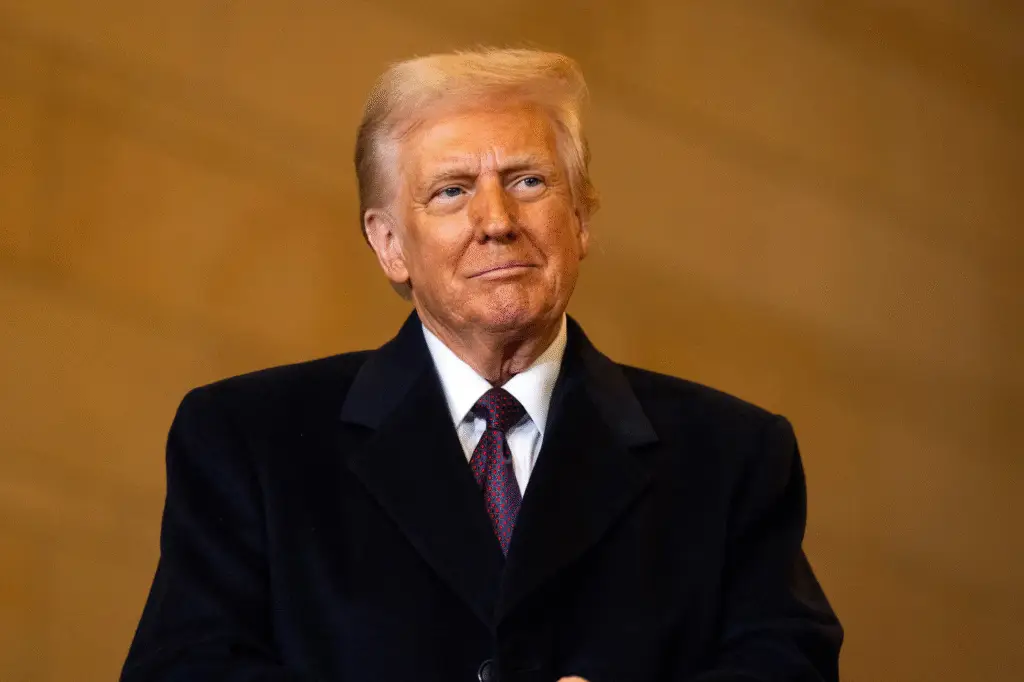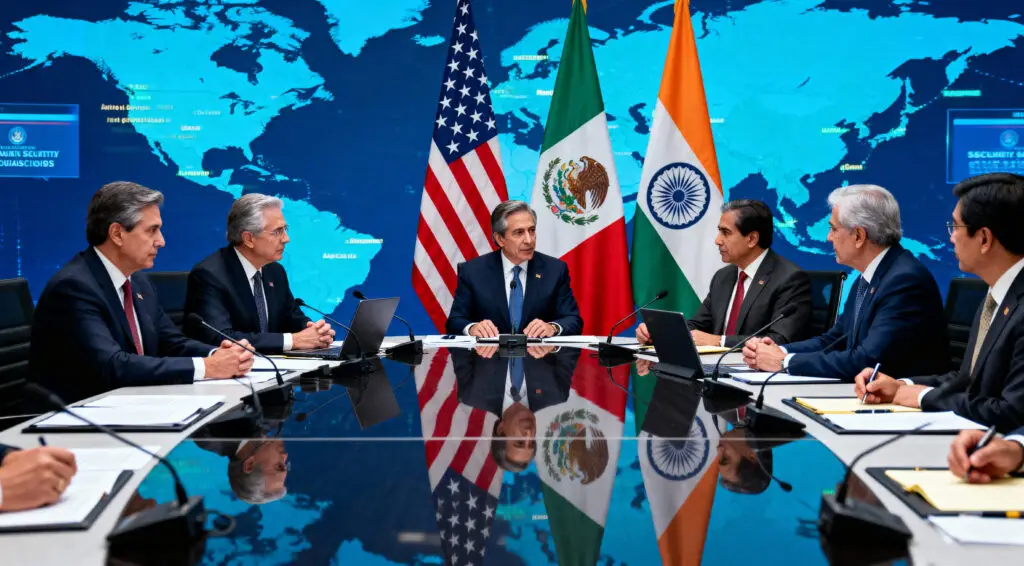U.S. Strategy on Mexico’s Drug Crisis Faces Global Implications
President Donald Trump’s executive order calling Mexican cartels international terrorist organizations sparked a new discussion over how to stop the fentanyl issue that is hurting the U.S. The decision, together with a 25% tax on Mexico, showed that the US was ready to fight and put punishment ahead of collaboration.
Experts, on the other hand, say that only looking at Mexico misses the illegal fentanyl trade that crosses borders, with China sending ingredients to cartels. Analysts say that using punishment without working together with other countries might make things worse and hurt long-term security goals in the area.

Fentanyl’s Transnational Network Requires a Global Solution
Reports from the U.S. Drug Enforcement Administration (DEA) and the Congressional Research Service (CRS) say that Chinese chemical exporters and Mexican cartels are the 2 main groups involved in making and selling fentanyl. In 2022, more than 79,000 Americans died from overdoses, mostly from synthetic opioids. This shows how terrible the situation is.
This information shows that using force alone won’t solve the fentanyl problem. Instead, experts say that the U.S., Mexico, and other countries should work together on a developmentbased, cross-border policy that includes economic cooperation, controlling the movement of precursors, and sharing intelligence.
Mexico’s Human Security Strategy Offers an Alternative Path
President Claudia Sheinbaum of Mexico has taken a different strategy than Washington, focusing on human security and getting to the bottom of crime. Her “4 axes of strategy” put education, youth employment, and community assistance at the top of the list to stop people from joining criminal groups.
This concept, which is based on Sheinbaum’s successful Barrio Adentro program in Mexico City, led to a 56% decrease in killings and a 53% drop in high crime rates from 2020 to 2023. The initiative shows how improving people’s lives and keeping them safe may work together to lower violence in a lasting way.
Recommended Article: Japan And Cebu Strengthen Infrastructure And Economic Links
Militarized “War on Drugs” Policies Have Always Failed
Analysts say that bringing up a militaristic “war on drugs” would be a mistake. Plan Colombia and Mexico’s Merida Initiative, for example, caused a lot of violence and broke up drug cartels, which only made the illegal drug trade worse instead of better.
Evidence indicates that cartels swiftly adapt, altering their operations and recruitment strategies under military pressure. These organizations use unemployment and poverty to rebuild, showing how coercive techniques that don’t deal with systemic inequalities and economic dependency on illicit trade don’t work.
Economic Development as a Weapon Against Cartel Recruitment
Experts say that longterm foreign direct investment (FDI) under President Sheinbaum’s “Plan Mexico” might change neighborhoods that are open to cartel control. The proposal, which costs $277 billion, tries to make illegal economies less attractive by creating more jobs, raising real wages, and investing in infrastructure.
Research in China and the U.S. shows that foreign direct investment (FDI) increases salaries and job security, making communities more resilient. Mexico can cut down on cartel recruiting by providing them other job options that are just as good. This would also help Washington’s bigger security aims in the area.
Triangular Cooperation: A New Geoeconomic Strategy
To help development and fight China’s expanding power in Latin America, experts suggest that the U.S., Mexico, and India form a 3way collaboration. India’s foreign direct investment (FDI) in manufacturing and technology, which includes money from Infosys, Tata Consultancy Services, and Vimecarti Viney, has already created thousands of skilled jobs in Nuevo León and Saltillo.
This partnership fits with Mexico’s tax breaks for telecom and electromobility innovation and supports ethical growth in industry. A triangle economic structure might help balance China’s power and promote common aims of economic security and stability in the region.
Aligning Economic Growth With Security Goals
It is important for Washington to use economic statecraft in its fight against cartels. Instead of only using military force to stop drug trafficking, the U.S. should lead a developmentsecurity program that uses trade, technology, and investment partnerships to undercut the illegal drug economy from the inside.
This kind of plan would help Mexico’s economy, stop cartels from recruiting new members, and make regional alliances stronger. It would also make sure that measures to fight fentanyl are longterm, work together, and fit with both democratic ideals and longterm security goals.
Toward a Sustainable Framework for Regional Stability
If the U.S. keeps using aggressive measures, it might lose a key partner in the area and give China more power through its Belt and Road Initiative. Instead of that, working together with India in a triangular way might help build a solid economic and security framework across North America and beyond.
Only concerted investment and inclusive development will stop the socioeconomic factors that give cartels influence in the longterm. Washington’s “war on drugs” will continue to be a costly and pointless fight against an enemy that keeps changing.























